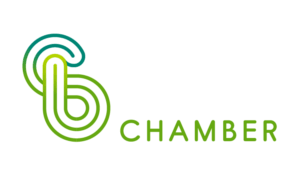Everyone Communicates, Few Connect
.png)
Date and Time
Friday Feb 24, 2023
12:00 PM - 4:00 PM CST
This is a three-day workshop
February 10, 17, & 24, 2023
From 12 pm to 4 pm
Location
Holiday Inn I-29 Council Bluffs
Fees/Admission
Members - $150
Non-Members - $175
Leaders of Integrity Development Program - $625
(Series of five professional development workshops. Please see the link below to learn more.)
Website
Contact Information
Alicia Frieze
Send Email
.png)
Description
This workshop examines the importance of communicating in a manner that fosters connection and builds relationships. If you can connect with others, one-on-one, or in groups, your sense of community improves, your ability to create teamwork increases, and your influence skyrockets. People who connect with others have better relationships, experience less conflict, and get more things accomplished than those who cannot connect. Leaders who have learned the art of connection are able to navigate tough subjects, establish buy-in, and attract teammates.
Course Driving Message: Connecting is the ability to identify with people and relate to them in such a way that it builds trust, fosters relationships, and creates an alliance focused on mutual success.
Delivery: This workshop is delivered in three sessions.
Session One: Communication Fundamentals
In this session, participants explore the fundamentals of communication, specifically the functions of senders, receivers, message content, and media through which messages are sent. Non-verbal communication, listening skills, and awareness of one’s own communication styes and references round out the session.
Course Driving Message: Understanding the roles that senders and receivers play in communication help to decode the message and separate the actual content from the intent behind sending the message. Additionally, recognizing the purpose of the media used to convey the message helps both senders and receivers more clearly and intentionally craft and send an effective message.
Delivery: This first session is four hours long and is broken into smaller modules with periodic breaks. Small and large group discussions along with hands-on activities allow for skills practice and processing of concepts.
By the end of this session participants will be able to:
- Identify the components of effective communication
- Craft messages for specific audiences
- Practice active listening skills
- Select appropriate media for transmitting messages
Module A: Communication Fundamentals- Identifying the components needed for communication
- Sender, receiver, message, medium
- Verbal, non-verbal, written, oral, and visual communication
- Listening skills
- Intent and purpose
- Language
- Style and tone
- Choosing the medium
- Timing of communication
- Presenting the message
- Receiving the message (analyzing the message)
Session Two: Interpersonal Communication
In this session, participants dive deeper into the impact that gender, age, and position (e.g. manager, executive, etc.) have on effective communication. Communication styles and methods often varies across demographic characteristics; understanding these influences on our communication patterns can improve the way we communicate in one to one circumstances.
Course Driving Message: Understanding the influences of demographic characteristics on our communication patterns can improve the way we communicate effectively in one to one circumstances.
Delivery Format: This second session is four hours long and is broken into smaller modules with periodic breaks. Small and large group discussions along with hands-on activities and case studies allow for skills practice and processing of concepts.
By the end of this session participants will be able to:
- Recognize different demographic communication characteristics
- Produce messages utilizing code switching principles
- Anticipate (?) how the receiver might perceive your message
Module A: Demographic Influences
- Gender (Feminine, masculine, non-binary)
- Age (Texting, e-mail, Social Media preferences; generational preferences)
- Culture (Language, non-verbals)
Module B: Ethics of Power and Position
- Managing communication up/down
- Transparency and intent
In this session, participants further explore the impact that interpersonal and group dynamics have on effective communication. The concept of emotional intelligence is introduced as is the role that clear and effective communication plays in developing a positive and productive workplace culture.
Course Driving Message: Clear and effective communication between individuals positively impacts communication to larger groups across a department, organization, or community.
Delivery Format: This third session is four hours long and is broken into smaller modules with periodic breaks. Small and large group discussions along with hands-on activities and case studies allow for skills practice and processing of concepts.
By the end of this session participants will be able to:
- Assess individual emotional intelligence skills
- Identify influences of group dynamics on effective communication
- Transform effective interpersonal messages into messages suited for larger audiences (?)
Module A: Emotional Intelligence
- Assessing individual EQ skills and behaviors
Module B: Influence of Group Dynamics on Communication
- Comparing individual versus group communication needs
- Changes in listening and perception
Module C: Producing Messages for Groups
- Desired impact
- Choosing the medium
- Timing of communication
- Presenting the message
- Receiving the message (analyzing the message)
Images
.png)

